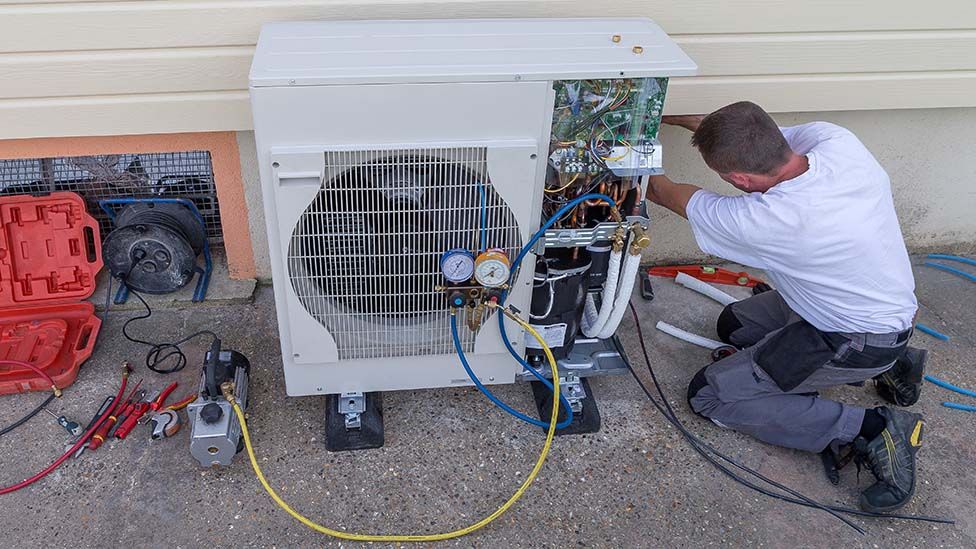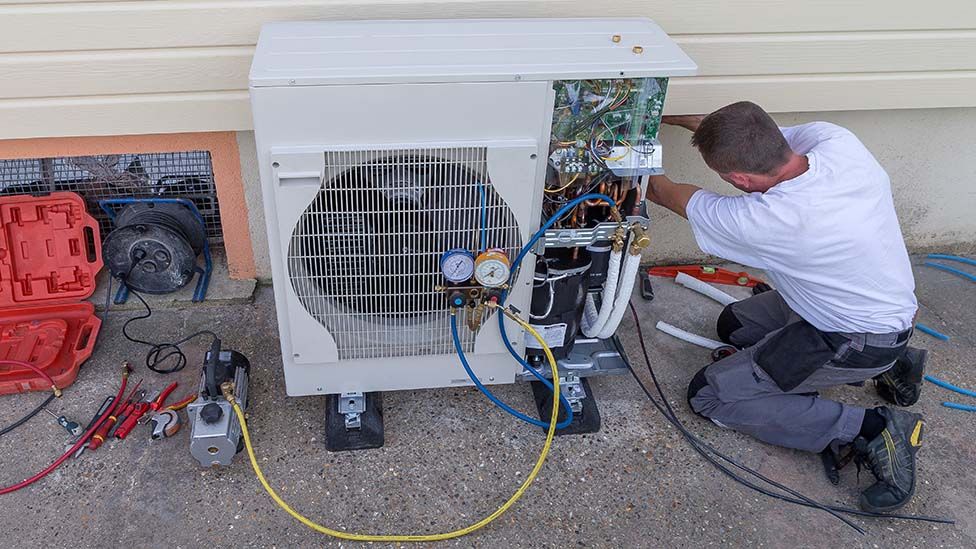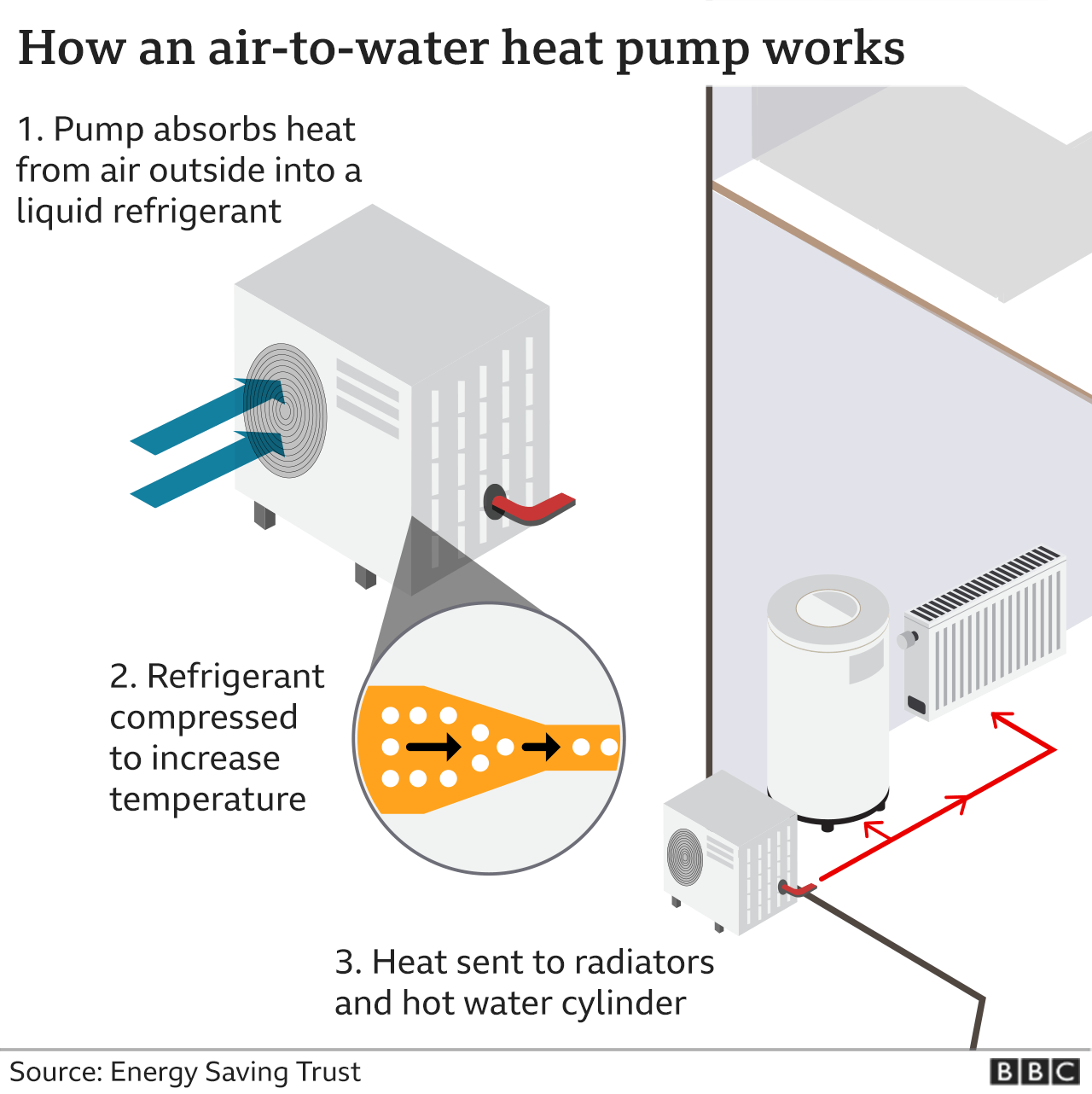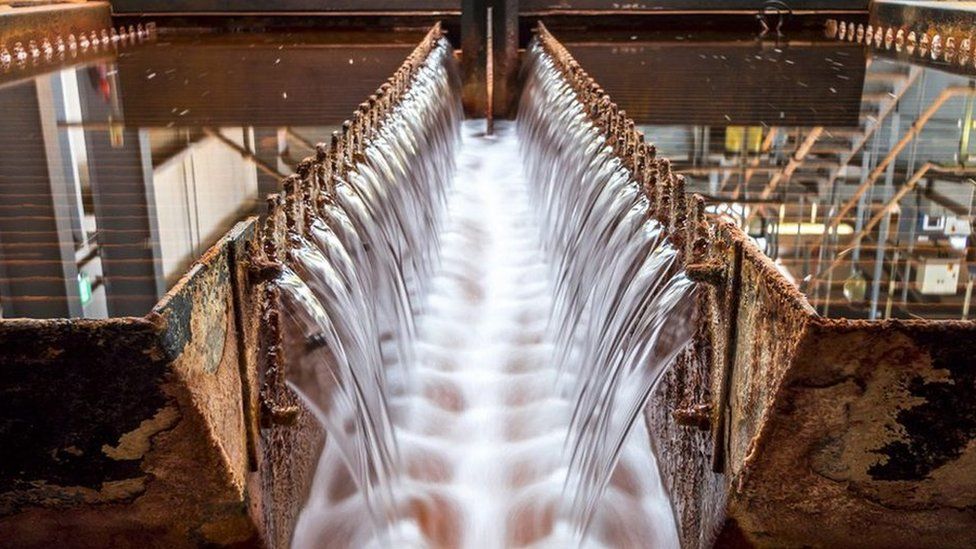Heat pumps: How much do they cost and how do they work?
The government wants people to replace gas boilers with heat pumps. …

- Published
- 11 hours ago
 Image source, Alamy
Image source, AlamyThe government is to offer £5,000 to people in England and Wales to replace their gas boilers with heat pumps.
It is part of efforts to reduce greenhouse gas emissions in the UK.
What do heat pumps cost and what is the deal?
Heat pumps are quite costly – between £6,000 and £18,000, depending on the type and the size of your home.
The £5,000 subsidy – available from next April – will bring the price closer to that of installing a new gas boiler.
Currently, gas heating accounts for 21% of the UK’s carbon emissions.
No new gas boilers will be sold after 2035.
How does a heat pump work?
A heat pump is an electrically powered device that absorbs heat from the air, ground or water around a building.
For example, air-source pumps suck in outdoor air and pass it over tubes containing refrigerant fluids to produce heat.

Will it be cheaper to run than a gas boiler?
Right now, given the soaring price of gas, it’s possible, but it’s not clear whether heat pumps will be cheaper to run in the long run.
The government says it will look at measures to ensure heat pumps are no more expensive to run than a gas boiler.
Can I install a heat pump at my home?
It’s easiest to put them in new builds, but older homes can also be fitted with heat pumps.
Most domestic heat pumps will extract heat from the air.
A box of about one metre by one metre needs to be outside (close to or attached to the property) to draw in air.
It should be at least one metre from your neighbour’s property so they will not be able to hear it, although it shouldn’t be much louder than your fridge.
You also need space inside for a heat pump unit and hot water cylinder. The unit will be about the size of a gas boiler – while the cylinder depends on the size of the home.
A ground source heat pump needs much more space outside: either a bore hole as much as 100m deep; or a horizontal system dug into the ground over a large area.
What are the drawbacks?
Installation can be difficult and expensive – you may need bigger radiators or to dig into floors.
And the high levels of insulation needed aren’t always possible in older, solid-walled homes common across the UK.
Engineers who are trained in installing and servicing heat pumps are – for the moment, anyway – harder to find.
And it is unclear whether people renting their homes will have a way to insist on them being warmed by heat pumps.
Is the government doing enough?
The government has set itself a target of installing 600,000 heat pumps a year by 2028.
However, only £450m is being set aside for the new subsidies over three years. This will cover a maximum of 90,000 boilers.
Environmental campaigners Greenpeace also say that gas boilers should be phased out much earlier than 2035.
Will there be alternatives to heat pumps?
District heating
Energy giant Vattenfall is planning a network of hot water pipes in south-east London that could benefit up to half a million homes, businesses, and public buildings.
Heat will be produced from burning waste, which is controversial. In other places it may come from heat pumps sunk into rivers and the sea.
Big gas companies are keen on the use of hydrogen, because it could continue to flow through their pipes to many homes.
The government is pioneering trials of hydrogen heating, with a series of pilots before the end of the decade,
But there are huge challenges to producing low carbon hydrogen and it’s a technology in its infancy.
 Image source, Coal Authority
Image source, Coal AuthorityOther options being considered include:
- Some places, such as Cornwall, will be able to use geothermal energy – from hot underground rocks. There’s already a geothermally heated swimming pool in Penzance, for instance. But such opportunities are scarce
- The agency that looks after decommissioned coal mines is pushing the idea that warm water could be drawn from old mine shafts
- The nuclear industry is arguing surplus heat from nuclear stations could be used
- Heat batteries – like giant high-tech storage heaters – will play a part, along with infrared indoor heat panels, some of which are already used in pub gardens


